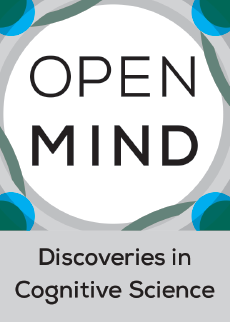Iris Berent at MIT Press Direct:
 Consciousness presents a “hard problem” to scholars. At stake is how the physical body gives rise to subjective experience. Why consciousness is “hard”, however, is uncertain. One possibility is that the challenge arises from ontology—because consciousness is a special property/substance that is irreducible to the physical. Here, I show how the “hard problem” emerges from two intuitive biases that lie deep within human psychology: Essentialism and Dualism. To determine whether a subjective experience is transformative, people judge whether the experience pertains to one’s essence, and per Essentialism, one’s essence lies within one’s body. Psychological states that seem embodied (e.g., “color vision” ∼ eyes) can thus give rise to transformative experience. Per intuitive Dualism, however, the mind is distinct from the body, and epistemic states (knowledge and beliefs) seem particularly ethereal. It follows that conscious perception (e.g., “seeing color”) ought to seem more transformative than conscious knowledge (e.g., knowledge of how color vision works). Critically, the transformation arises precisely because the conscious perceptual experience seems readily embodied (rather than distinct from the physical body, as the ontological account suggests). In line with this proposal, five experiments show that, in laypeople’s view (a) experience is transformative only when it seems anchored in the human body; (b) gaining a transformative experience effects a bodily change; and (c) the magnitude of the transformation correlates with both (i) the perceived embodiment of that experience, and (ii) with Dualist intuitions, generally. These results cannot solve the ontological question of whether consciousness is distinct from the physical. But they do suggest that the roots of the “hard problem” are partly psychological.
Consciousness presents a “hard problem” to scholars. At stake is how the physical body gives rise to subjective experience. Why consciousness is “hard”, however, is uncertain. One possibility is that the challenge arises from ontology—because consciousness is a special property/substance that is irreducible to the physical. Here, I show how the “hard problem” emerges from two intuitive biases that lie deep within human psychology: Essentialism and Dualism. To determine whether a subjective experience is transformative, people judge whether the experience pertains to one’s essence, and per Essentialism, one’s essence lies within one’s body. Psychological states that seem embodied (e.g., “color vision” ∼ eyes) can thus give rise to transformative experience. Per intuitive Dualism, however, the mind is distinct from the body, and epistemic states (knowledge and beliefs) seem particularly ethereal. It follows that conscious perception (e.g., “seeing color”) ought to seem more transformative than conscious knowledge (e.g., knowledge of how color vision works). Critically, the transformation arises precisely because the conscious perceptual experience seems readily embodied (rather than distinct from the physical body, as the ontological account suggests). In line with this proposal, five experiments show that, in laypeople’s view (a) experience is transformative only when it seems anchored in the human body; (b) gaining a transformative experience effects a bodily change; and (c) the magnitude of the transformation correlates with both (i) the perceived embodiment of that experience, and (ii) with Dualist intuitions, generally. These results cannot solve the ontological question of whether consciousness is distinct from the physical. But they do suggest that the roots of the “hard problem” are partly psychological.
More here.
